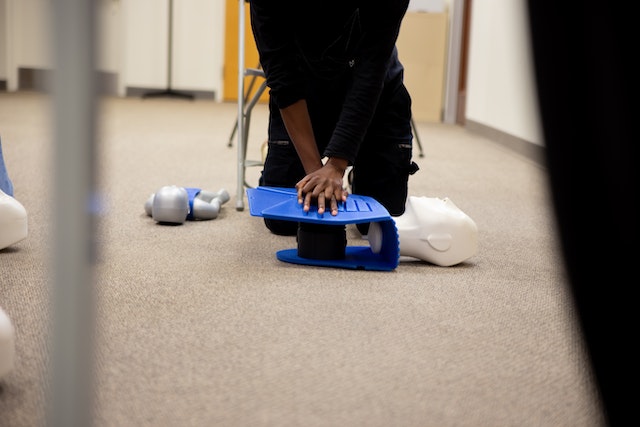
Heart health is a critical aspect of overall health, and it’s essential to know how to respond in case of a heart-related emergency. Heart disease is the leading cause of death worldwide, and every year, millions of people suffer from cardiac arrests. Knowing how to respond to such emergencies can mean the difference between life and death.
First aid training courses are designed to equip individuals with the necessary skills and knowledge to respond to emergencies, including heart health emergencies. Here are some ways in which first aid training courses can help you respond to heart health emergencies:
Recognize Symptoms of a Heart Attack
First aid training courses teach you how to recognize the symptoms of a heart attack. This includes chest pain, shortness of breath, nausea, sweating, and lightheadedness. Knowing the symptoms of a heart attack is critical as early recognition and intervention can help save a life.
CPR and AED Training
First aid training courses include CPR and AED training, which are crucial skills to have in case of cardiac arrest. CPR involves performing chest compressions and rescue breaths to keep the blood and oxygen flowing to the heart and brain until medical help arrives. AED stands for Automated External Defibrillator, which is a device that can be used to restore a person’s heart rhythm to normal in case of a cardiac arrest.
Response Time
In an emergency situation, every second counts. First aid training courses teach you how to respond quickly and efficiently in case of a heart health emergency. This includes calling emergency services, providing CPR, and using an AED.
ALSO READ: Keys to a Heart-healthy Diet: Avoiding Cardiovascular Disease
Confidence
Knowing what to do in an emergency situation can be overwhelming and stressful. First aid training courses help build confidence in individuals to respond to heart health emergencies. This can help them remain calm and collected in stressful situations, which can be a significant factor in saving someone’s life.
Prevention
First aid training courses also teach individuals about heart health and ways to prevent heart disease. This includes lifestyle changes such as a healthy diet, exercise, and stress management.
Conclusion
In conclusion, first aid training courses are a valuable investment for anyone in the health and diet industry. Knowing how to respond to heart health emergencies can make all the difference in saving a life. By recognizing the symptoms of a heart attack, knowing how to perform CPR and use an AED, responding quickly, building confidence, and preventing heart disease, individuals can be better equipped to respond to heart health emergencies.
Remember, it’s not just about knowing what to do in an emergency situation; it’s about having the skills and knowledge to act quickly and confidently to make a difference.
